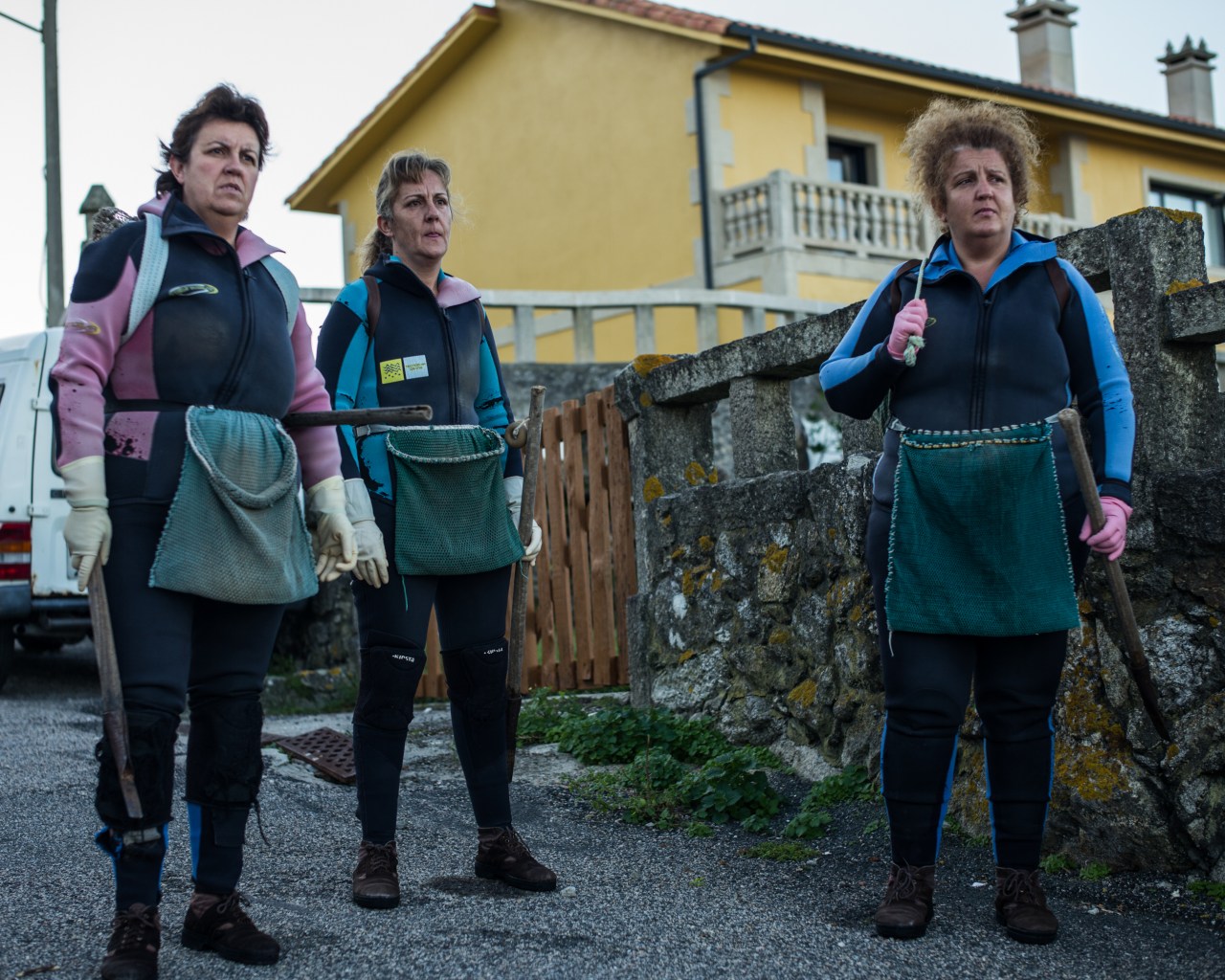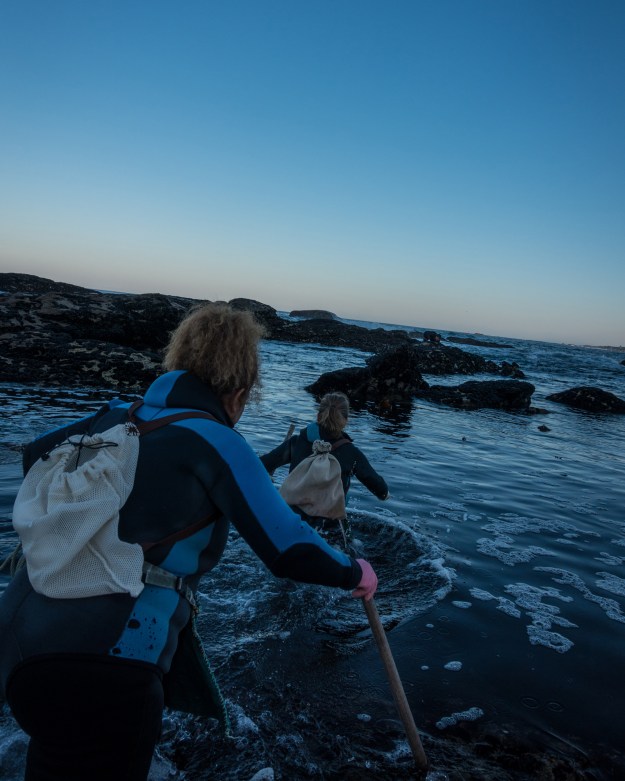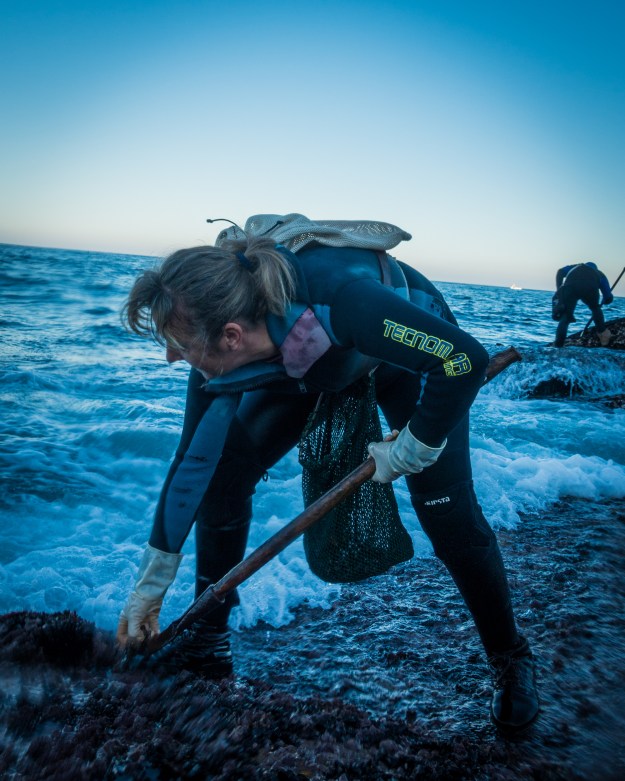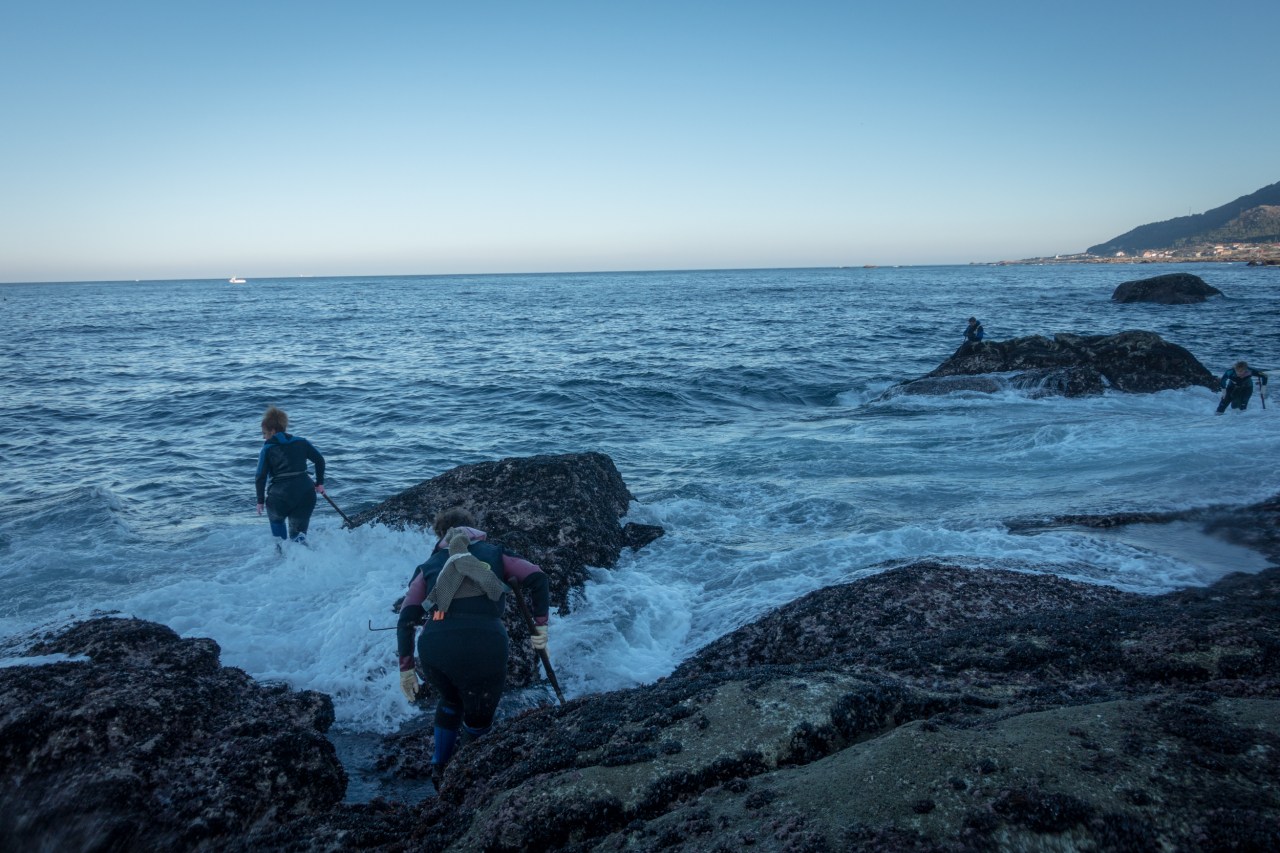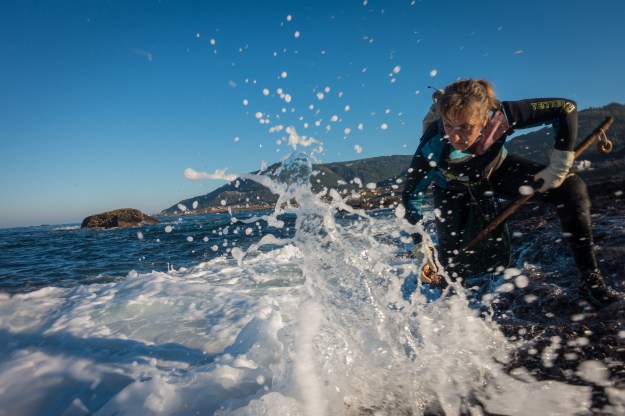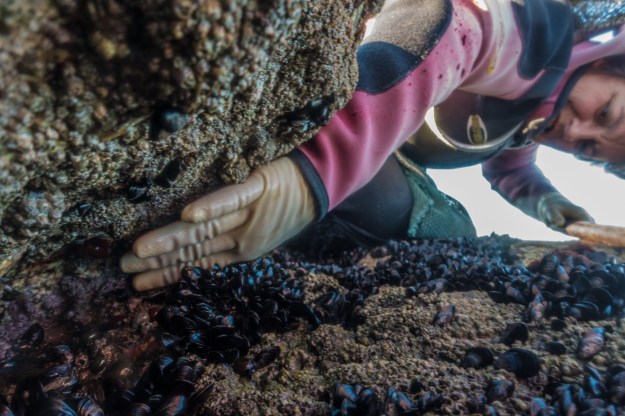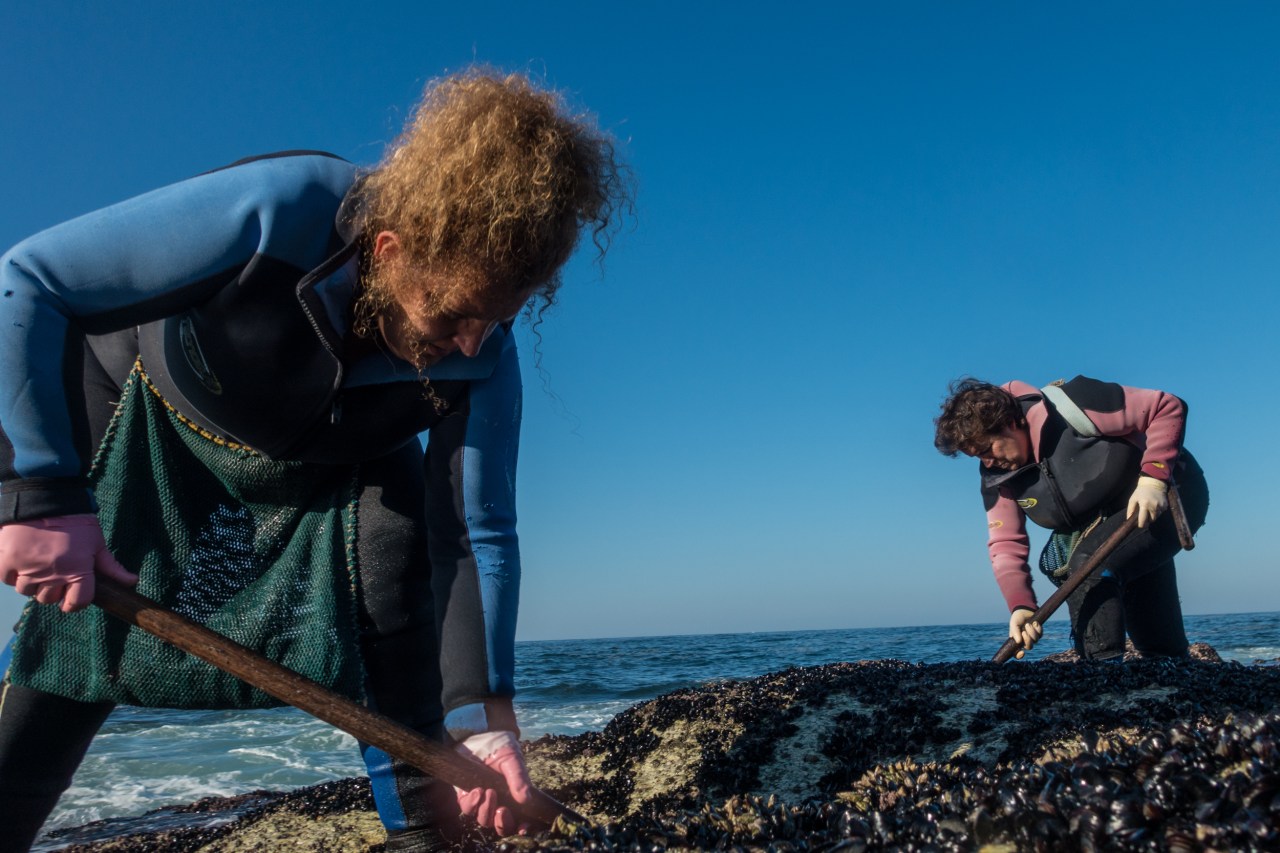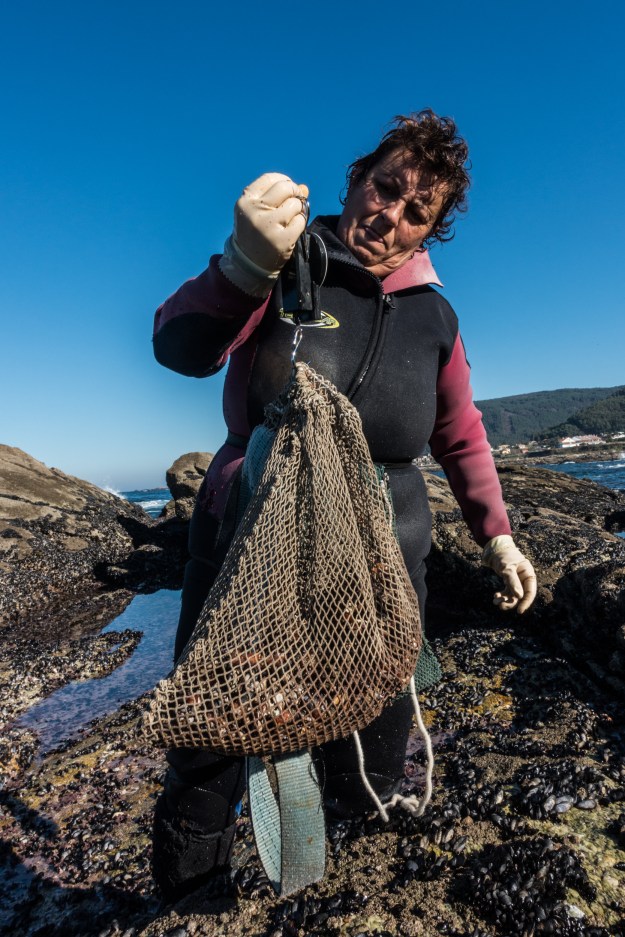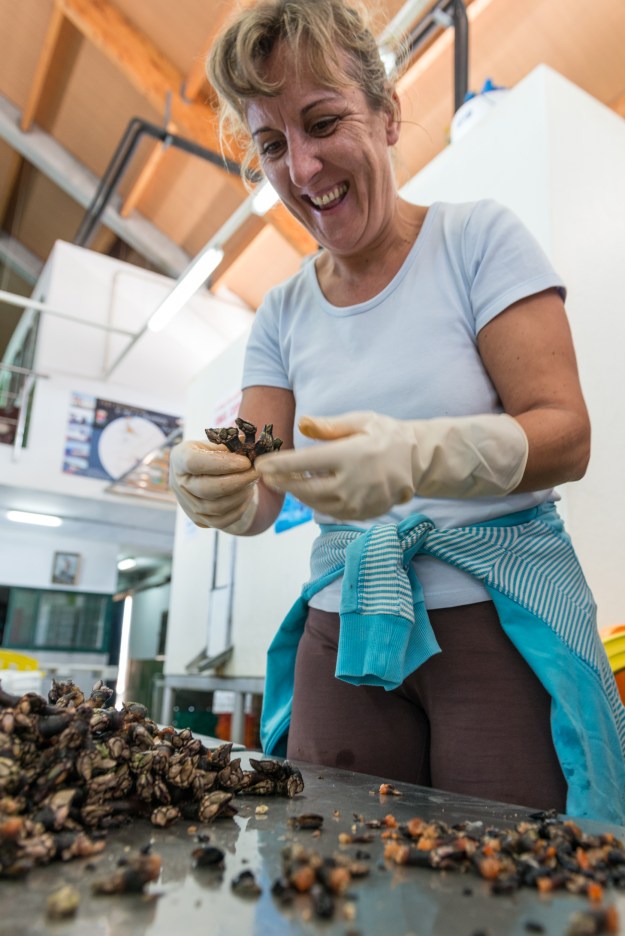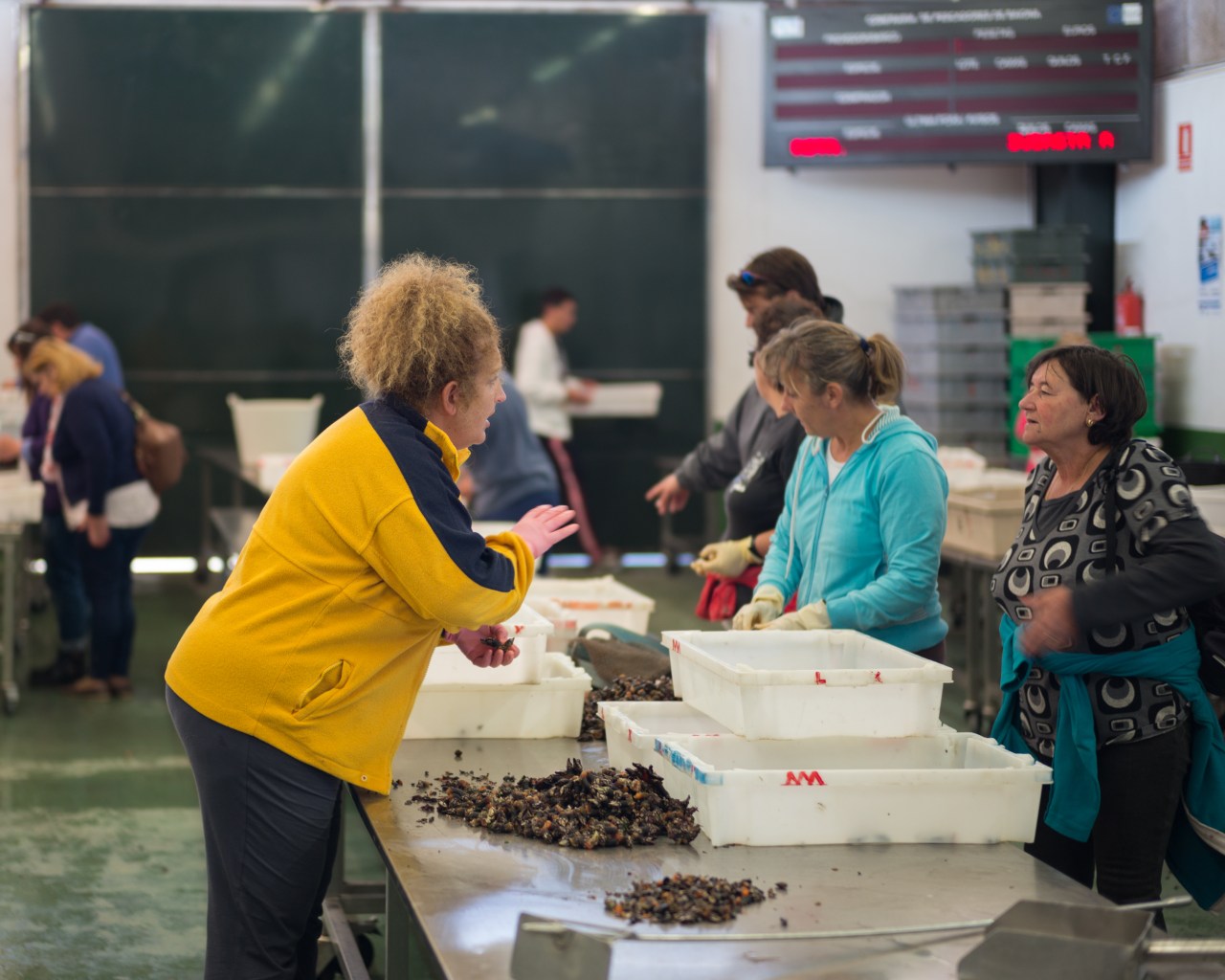Galician barnacles are the king of the seafood market in northern Spain: short and slender, with a hard, rocky base and a dark, leathery sheath hiding a single finger of ocean meat that drives Spaniards wild. Boiled briefly and seasoned with nothing but the essence of the ocean, percebes combine the same wave of umami and undertow of sweetness particular to all great seafood, only in a dense package with a taut, snappy texture. In a country where people are willing to invest an imprudent percentage of their income on ocean treasure—Catalonian red shrimp, Asturian spider crabs, Cantabrian anchovies—percebes can fetch up to 200 euros ($235) per kilo (2.2 pounds), nearly half of which is inedible, making it one of the most expensive delicacies in the world.
The elevated price reflects a confluence of both market and organic factors: the unpredictability of supply, the uncontrollable elements that create quality barnacles, the massive seasonal swings in demand. And, above all, the danger of being a percebeiro, a hunter and gatherer of the gooseneck barnacle. Percebes grow in very specific places: namely, clinging to the sides of sharp rocks with full exposure to ocean swells. To be a successful percebes hunter, you must negotiate a series of natural challenges—frigid water temperatures, the fierce Galician weather, and the force and unpredictability of the ocean at its angriest. Almost everyone living in these coastal towns has lost a friend or a family member to the Atlantic.
Susana, Isabel, and Lala González have the barnacle business in their blood. Both of their grandmothers were percebeiras, women who scratched out a living from the cracks and crevices of the Atlantic ocean. Their parents, too. Beyond the everyday dangers of the job, the González sisters have had another challenge to contend with: being women in a job long dominated by men. But together they’ve held their own, enduring threats and physical altercations to rise to leadership roles in the barnacle-driven community of Baiona on the southern coast of Galicia. Along the way, they’ve managed to increase quotas and workers rights for other female percebeiras, and redefine the very nature of the barnacle-hunting culture in the northwest corner of Spain.
A version of this article was originally published on Roads & Kingdoms on November 11, 2016.
